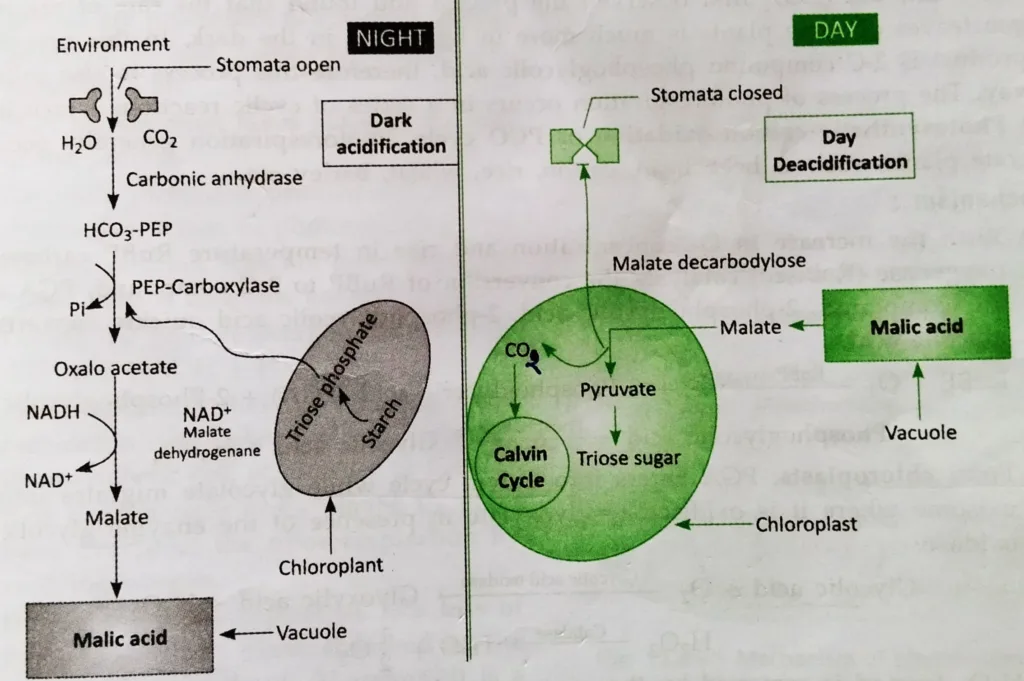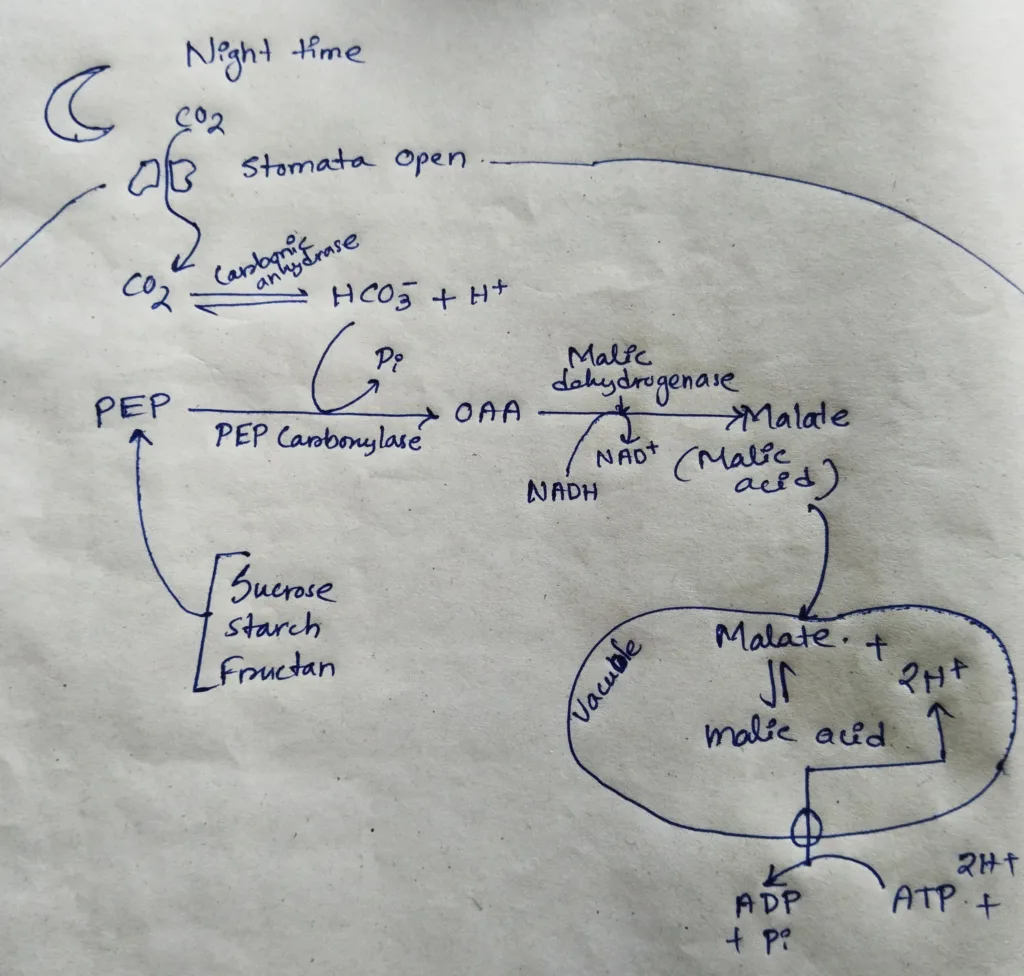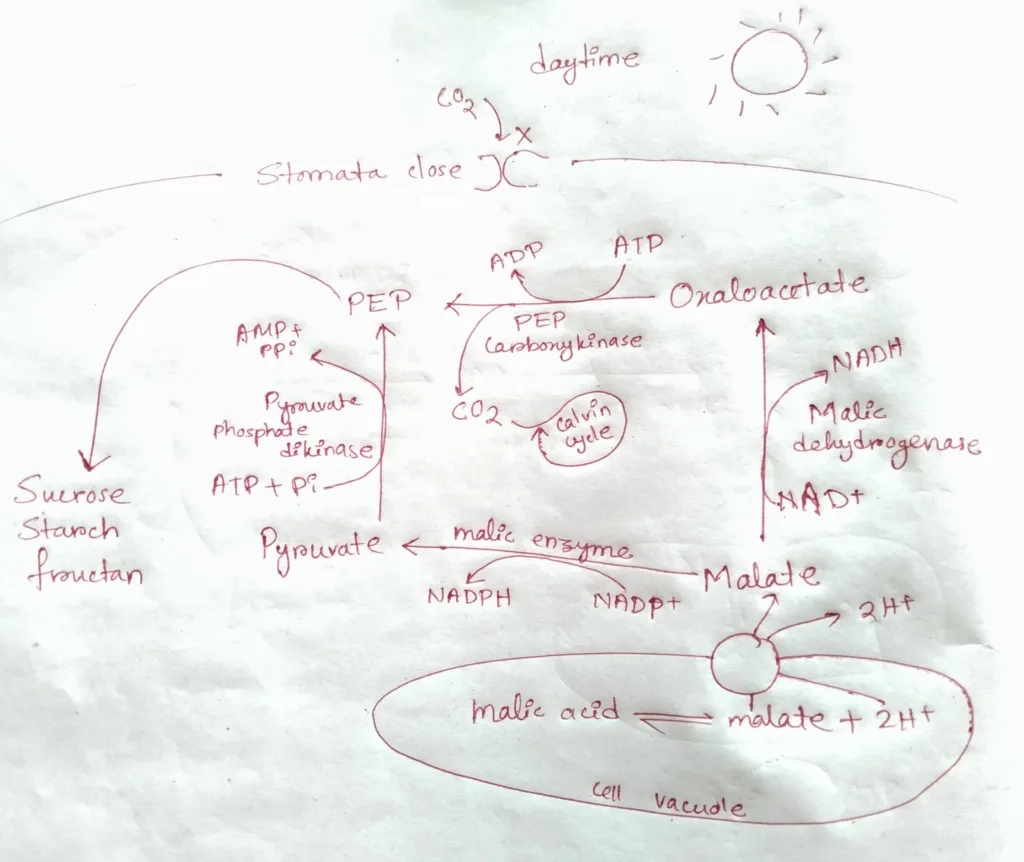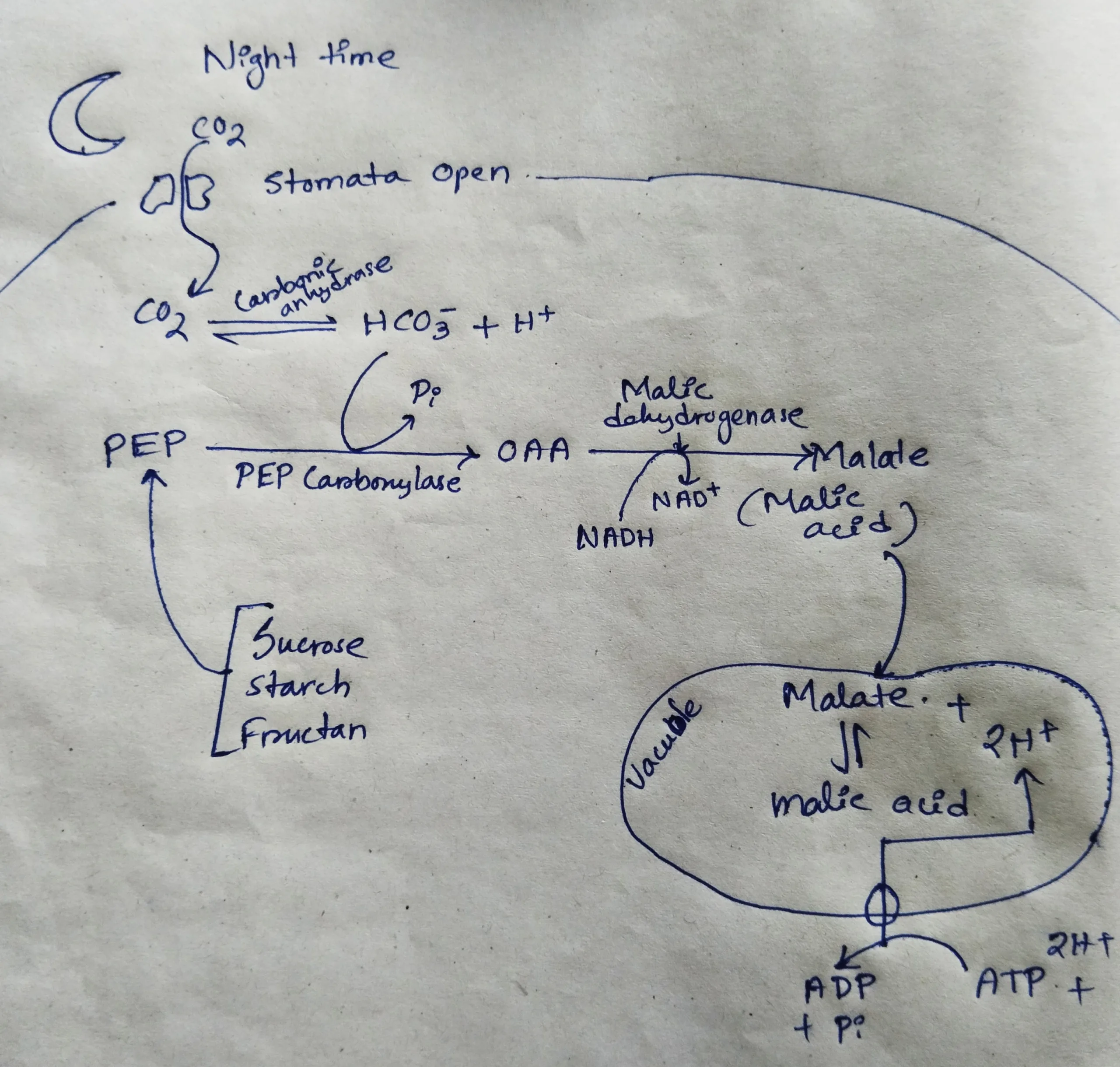Table of Contents
Crassulacean Acid Metabolism (CAM)- this phenomenon was first observed by Moyse et. al (1957) in plants like Bryophyllum, Kalanchoe, etc. of the family Crassulaceae. Because of this, it is named so.
This type of metabolism is also found in Opuntia, Orchids, Pineapple, etc. The plants, particularly the succulents that grow in semi-arid conditions fix atmospheric CO2 to form malic acid in the dark. These plants accumulate organic acid during the night which is used during the daytime.

The process takes place in two major steps– 1) Dark fixation of CO2 and synthesis of malic acid, 2) Deacidification of malic acid.
The steps are as follows with explanations and schematic representation:
The first step of Crassulacean Acid Metabolism-Dark fixation of CO2 and synthesis of malic acid:
- Since the stomata in these plants are open at night, CO2 from the atmosphere enters into the leaves by diffusion.
- Phosphoenolpyruvate (PEP) is carboxylated in the presence of the enzyme PEP carboxylase to produce a 4-carbon compound oxaloacetic acid. Then the oxaloacetic acid is converted to malic acid in the presence of the enzyme Malic dehydrogenase.
- This reaction needs NADPH+ + H+. The produced malic acid in the dark is stored in the cell vacuole.
- PEP + CO2 ——-PEP Carboxylase————-> H2O + OAA +Pi
- OAA + NADPH+ + H+ —Malic dehydrogenase——–> Malic acid + NADP+
The second step: Deacidification of malic acid:
- In the daytime, the stored malic acid (in the cell vacuole) is decarboxylated to pyruvic acid and CO2 is evolved.
- The reaction is catalyzed by the malic enzyme.
- One molecule of NADP+ is reduced in this step of CAM and NADPH+ + H+ is produced.
- Malic acid + NADP+ ——-Malic enzyme———-> Pyruvic acid + CO2 + NADPH+ + H+
- The pyruvic acid so formed may be oxidized to CO2 in the Krebs Cycle, or converted to phosphoenol pyruvic acid or phosphoglyceric acid (PGA). The pyruvic produces sugar (Sucrose, starch, fructan) too through the C3 cycle.
- CO2 released by the deacidification of malic acid is fixed in the form of carbohydrates by the C3 (Calvin Benson cycle) cycle.
Schematic representation in brief:

Characteristics of CAM plants:
- These plants grow in semi-arid and xeric (very dry or with little moisture) conditions.
- The stem, leaves and petioles are fleshy or succulents.
- Stomata open at night but remain closed during the daytime to conserve water.
- Vascular bundles are surrounded by the bundle sheath cells.
- The leaves of these plants are small, the stomata are shrunken, the cuticle is thick.
Schematic representation in detail (Hand-made):
At Night Time:

At Daytime:

The differences between the C4 and CAM plants:
| Features | C4 plants | CAM plants |
| 1. CO2 acceptor | CO2 acceptor is PEP in the presence of PEP carboxylase during daytime. | CO2 acceptor is PEP in the presence of PEP carboxylase during at night. |
| 2. Stomata remains open | during daytime | during night |
| 3. Stomata remains close | at night | during daytime |
| 4. Kranz anatomy in leaves | present | absent |
| 5. Photorespiration | absent | present |
| 6. Growth rate | much faster than CAM | much slower than C4 |
| 7. Example | Saccharum officinales | Opuntia |
Other related notes:
- Photosynthesis Equation: https://thebiologyislove.com/photosynthesis-equation-and-reactants/
- Light Reaction: https://thebiologyislove.com/light-reaction-of-photosynthesis/
- Dark Reaction: https://thebiologyislove.com/calvin-benson-cycle-or-dark-reaction/
- C4 cycle: https://thebiologyislove.com/hatch-and-slack-pathway-c4-cycle/
- Photorespiration or C2 pathway: https://thebiologyislove.com/photorespiration-or-c2-pathway/
Facebook Link: https://www.facebook.com/share/p/Zs39YZcbx4DMQukm/?mibextid=oFDknk
Instagram link: https://www.instagram.com/p/C6OXRTnRnfZ/?igsh=MWxkdXVzOHRxMmh1aQ==

